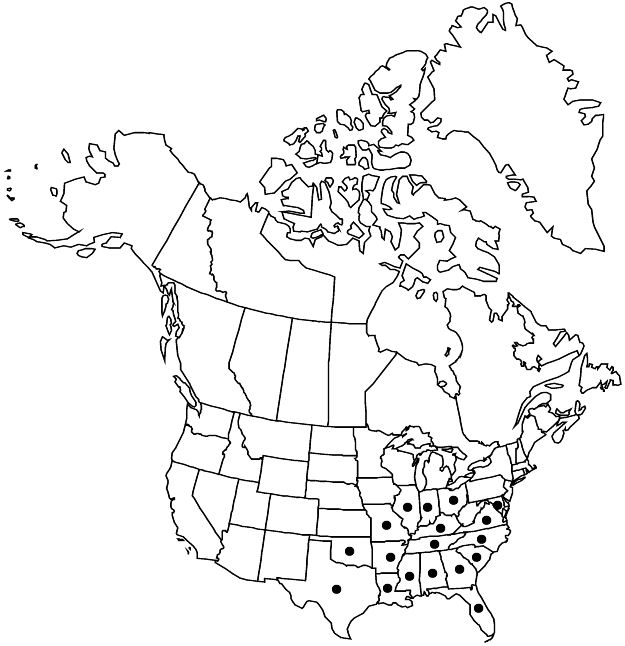Frangula caroliniana
Gen. Amer. Bor. 2: 178. 1849.
Shrubs or small trees, 2–6 (–10) m. Stems gray, glabrous or pubescent. Leaves deciduous; petiole 8–20 mm; blade dull green abaxially, glossy dark green adaxially, oblong to elliptic or obovate-elliptic, (3–) 5–13 cm, herbaceous, base cuneate to rounded, margins serrulate or crenulate to nearly entire, apex acute to acuminate or obtuse, abaxial surface puberulent on veins, adaxial surface glabrous; secondary-veins 6–9 (–10) pairs. Inflorescences umbels, pedunculate, 1–14-flowered. Pedicels 3–6 mm. Stigmas 3-lobed. Drupes black, globose, 8–10 mm; stones 3.
Phenology: Flowering Apr–Jun.
Habitat: Dry to moist barrens, sandy and gravelly flats, roadsides, ravines, bluffs, limestone bluffs, shell middens, bottomlands, swamp and pond edges, coastal hammocks, deciduous and coniferous forests.
Elevation: 50–500 m.
Distribution

Ala., Ark., Fla., Ga., Ill., Ind., Ky., La., Md., Miss., Mo., N.C., Ohio, Okla., S.C., Tenn., Tex., Va.
Discussion
Rhamnus caroliniana var. mollis (type from Illinois, with leaves persistently soft-pubescent abaxially) has sometimes been recognized as a western/Ozarkian entity (for example, H. A. Gleason and A. Cronquist 1991), but intermediates and intergrades with the typical form (with leaves glabrescent abaxially) are as numerous as the extremes.
Selected References
None.